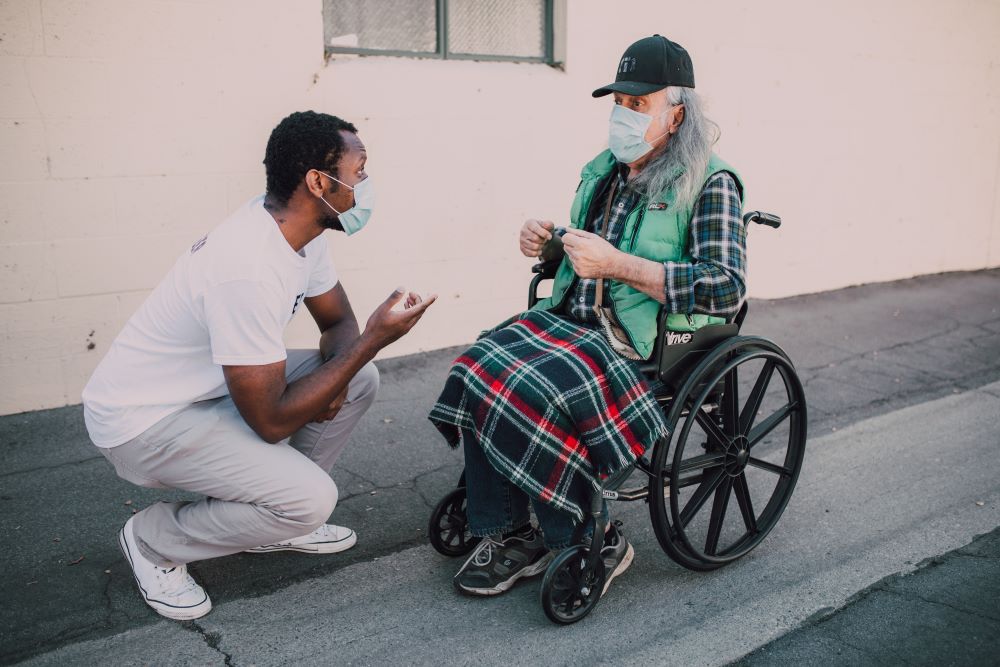By raising awareness of abuse in long-term care facilities, you can advocate for the rights and safety of residents and take appropriate actions to address and prevent such mistreatment.
Negligence and abuse are prevalent issues in long-term care facilities. Research shows that many vulnerable residents leave these facilities worse than they were on admission.
If you suspect negligence or abuse in a long-term care facility, you may be eligible for compensation. However, you may want to hire a Houston personal injury attorney to advocate for your rights and pursue justice through legal action.
Common Forms of Abuse in Long-term Care Facilities
Residents in long-term care facilities may be subjected to the following forms of abuse, which can have severe physical, emotional, and psychological consequences:
Physical Abuse
This involves the use of physical force that results in bodily injury, pain, or impairment. Examples include hitting, pushing, restraining, or withholding medication.
Emotional Abuse
Emotional abuse entails the infliction of mental anguish, fear, or distress through verbal insults, humiliation, threats, or isolation. Caregivers may manipulate or intimidate residents to exert control over them.
Financial Abuse
Financial exploitation occurs when caregivers misuse or steal a resident’s money, property, or assets for personal gain. This may involve forging signatures, coercing residents into signing financial documents, or stealing valuables.
Negligence
Negligence occurs when caregivers fail to provide necessary care, assistance, or supervision to residents, leading to physical harm or deterioration of health. Examples include inadequate nutrition, hygiene, or medical attention.
Sexual Abuse
Sexual abuse involves any non-consensual sexual activity or behavior inflicted upon a resident. Among others, common acts of sexual abuse include:
- Unwanted sexual contact
- Coercion, or
- Exploitation.
Medication Mismanagement
Medical mismanagement occurs when caregivers administer incorrect dosages, withhold medication, or fail to follow prescribed protocols. This can expose residents to adverse effects or worsen their health conditions.
Verbal Abuse
Verbal abuse includes the use of harsh language, threats, yelling, or derogatory remarks directed at residents. This form of abuse can undermine residents’ self-esteem and cause emotional distress.
Social Isolation
Caregivers may intentionally isolate residents from social interactions, visits, or activities, depriving them of companionship and support networks, which can lead to loneliness and depression.
Chemical Restraint
Inappropriate use of medication or sedatives to control residents’ behavior or restrict their movement constitutes chemical restraint, which can result in physical and cognitive decline.
Medical Neglect
Failure to address residents’ medical needs, including injuries, infections, or chronic conditions, constitutes medical neglect, potentially leading to deterioration of health and preventable complications.
Legal Protections and Remedies Available to Victims of Abuse in Long-term Care Facilities
Victims of abuse in long-term care facilities have legal protections and remedies available to seek compensation and the justice they deserve. These may include filing a civil lawsuit against the facility or responsible individuals for damages such as medical expenses, pain and suffering, and punitive damages.
Additionally, victims can report the abuse to state regulatory agencies, such as adult protective services or departments of health, triggering investigations and potential sanctions against the facility. Alternatively, seeking legal assistance from a personal injury attorney can help victims understand their rights, navigate the legal process, and pursue compensation and accountability for the harm they have suffered.
Who Can Be Held Liable for Negligence or Abuse in Long-term Care Facilities?
Here are the categories of people potential who can be potentially held liable for negligence or abuse in long-term care facilities:
Caregivers and Staff Members
Those directly responsible for providing care and assistance to residents, including nurses, aides, and administrators, may be held liable for neglect or abuse if they fail to meet their duty of care obligations.
Facility Owners and Administrators
Owners and administrators of long-term care facilities have a legal duty to ensure the safety and well-being of residents. They can be held accountable for negligence or abuse if they fail to implement adequate policies, training programs, or supervision protocols to prevent harm.
Medical Professionals

Physicians, therapists, and other medical professionals working within long-term care facilities may be liable for negligence if they provide substandard medical care, medication errors, or fail to diagnose and treat residents’ medical conditions appropriately.
Contractors and Service Providers
Third-party contractors or service providers, such as food service companies, maintenance workers, or security personnel, can be held liable for negligence if their actions or omissions contribute to harm or injuries suffered by residents.
Family Members and Legal Guardians
In some cases, family members or legal guardians of residents may also be held liable for neglect or abuse if they fail to fulfill their duty to advocate for the resident’s rights and well-being, or if they are found to be complicit in the mistreatment.
By raising awareness of abuse in long-term care facilities, you can advocate for the rights and safety of residents and take appropriate actions to address and prevent such mistreatment. If you suspect any form of abuse, report to relevant authorities immediately to protect the rights and well-being of victims.


Join the conversation!